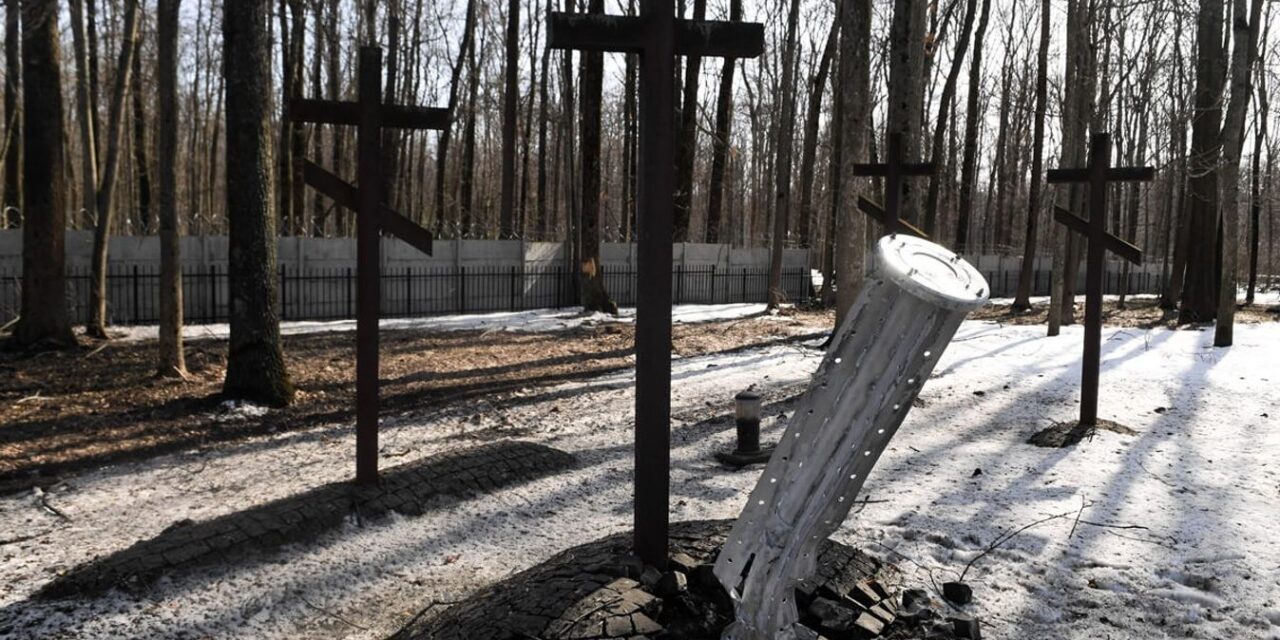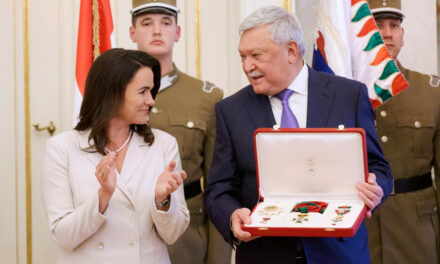Double standards and hypocrisy on the cube.
At the time, Germany enthusiastically joined the convention banning cluster bombs. Now it turned out that he is not only storing the weapons thanks to the Americans, but is just as enthusiastically helping to transport them to Ukraine. In the meantime, Lithuania made a decision out of muscle, but at least not out of spite - and withdrew from the agreement.
Few weapons have evoked as much social and governmental distaste in the war in Ukraine as cluster bombs. The special feature of the weapon is that it contains countless smaller explosive devices that scatter over a large area while still in the air and explode. It is no coincidence that most of the global community opposes its use: the location of impacts is completely unpredictable, so it is practically unsuitable for targeted destruction - it destroys both soldiers and civilians within its range. An even more serious problem is that some of the scattered projectiles do not go into action at all, the delayed explosion often occurs even years after the end of the war, of course, with civilians on the scene. Because of the latter, cluster bombs are compared to landmines left in the ground by war-torn countries, which are capable of killing indiscriminately even decades after they are dropped.
When Russia used cluster bombs for the first time in the conflict in Ukraine, international organizations and public opinion - justifiably - both went berserk. When the Dublin Declaration was signed in 2008 (entered into force in 2010), 107 countries (including Hungary, of course) ratified the ban on any use of cluster bombs. NATO Secretary General Jens Stoltenberg called the deployment of Russian bombs inhumane and a violation of international law. He was both right and wrong.
Russia, China and the United States have never ratified the convention. And not only them, but also Ukraine.
The double standard was immediately apparent when the United States announced that it would deliver cluster bombs to Ukraine at Kiev's request. The vast majority of Western states, which until then labeled the Russians as terrorist killing machines, remained silent and did not say a word against the use of weapons. With rare exceptions, the uproar over violations of international law and inhumanity suddenly subsided.
Germany looks away
Germany was a leading figure in the fight against cluster bombs. It was one of the first countries to ratify the banning convention, and in 2015 it completed the destruction of its own stockpile of ammunition. As Responsible Statecraft recalls, when President Biden first announced the delivery of weapons to Ukraine last summer (since then he has done it four more times), Foreign Minister Annalena Baerbock publicly and understandably opposed Washington's move, referring to the expected large number of civilian casualties. (He was right about this, cluster bombs kill indiscriminately on the Ukrainian side as well as on the Russian side.) The protest then became more and more languid, until finally it died down completely.
The fact-finding material of the German ARD, which was broadcast at the end of July, shed light on why. A spokesperson for the United States military confirmed in writing to the journalists who prepared the material that
the Pentagon stores cluster bombs at its base in Germany, from where it transports them via Poland to Ukraine.
Charlie Dietz, the spokesman for the Ministry of Defense, refused to reveal details, but at the same time did not deny the fact of the presence of the weapons in Germany, adding that both the storage and transportation are carried out in compliance with international law.
As far as the Germans are concerned, they initially argued that the weapons stored at American bases are not subject to German authority and law - this is true, but only from the moment that the German government permits the storage of ammunition and bombs and their transport in its own country across. Starting from the basic rationale, in the second round Defense Minister Boris Pistorius himself explained the development of the extremely embarrassing situation by saying that the American-German agreement on American weapons is quite broad, and in the absence of legal instruments
the German government has no idea what weapons the US military is storing and shipping out of the country to Ukraine.
This was already a level of slippage that was easy to refute. In the material mentioned by ARD, the spokesperson of the US army himself confirmed that the German Ministry of Defense and the Bundeswehr will of course receive the documentation of the exact and detailed content of all shipments destined for Ukraine. It's been quiet ever since.
The United States government (which at the time was already trying to force the signing of the ban convention) was absolutely unwilling to answer the questions of the social organizations advocating the complete ban of cluster bombs, about the exact amount it delivers to Ukraine, and where there are still US stocks in Europe for the NATO by the Secretary General as inhumane and from weapons that violate international law.
It's Lithuania!
While Germany was obfuscating and smearing about cluster bombs, Lithuania did something completely unexpected: it simply withdrew from the banning convention. Such a thing is quite rare in international agreements, especially when it is based on the philosophy of the "moral good".
This is particularly surprising because the country has never manufactured, stockpiled or transported cluster bombs. He has repeatedly condemned Russia for using the weapons, but remained remarkably silent when Ukraine began using them as well. The silence then turned into another noise: the Lithuanian government does not hide the fact that, in parallel with the withdrawal from the convention, it is already interested in how it could acquire some of the weapons that it had banned until now. It was a quick and negative turn of events: at last September's meeting of the member states that signed the agreement, Lithuania reluctantly condemned the use of weapons by the warring parties, and then submitted the withdrawal documents to the UN almost a few weeks after the meeting.
During the parliamentary debate, Defense Minister Laurynas Kasčiūnas defended the government's position by saying that when Lithuania ratified the convention, "there were other times", now, in the current war conditions, the state cannot afford to worry about what weapons it does not use for defense.
Lithuania is a classic example of hypocritical bubble politics. He only considered the convention important until he felt his own safety was in danger. The moment the possibility of escalating the war arose, he took the harshest narrative, trashing all his previous thoughts and arguments – significantly damaging his image even with his own allies.
Regarding the justification, Human Rights Watch's senior staff member dealing with armaments, Mary Wareham, summed up the essence when - not so covertly accusing the Lithuanian government of hypocritical behavior - she stated that international humanitarian law should be applied precisely in war situations, not in peacetime, after Were created. As he writes:
"it was not made for carefree days, but for the dark period of humanity, when people are in the greatest danger in armed conflicts".
Featured image: Russian cluster bomb drilled into the ground in the Kharkiv-Pyatyihatki cemetery on March 23, 2022 (MTI/EPA/PAP/Andrzej Lange)













